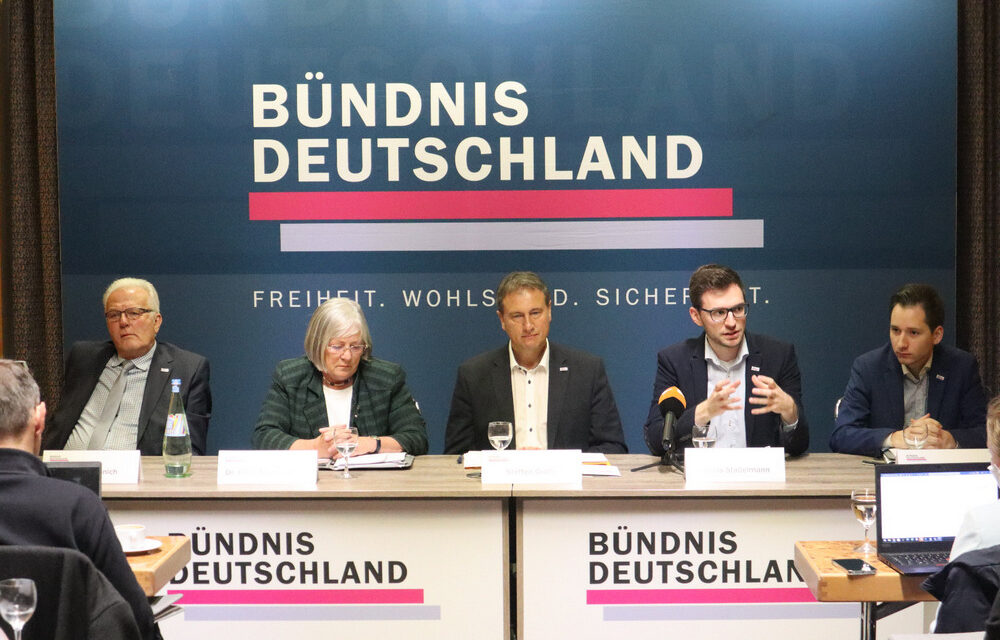A new conservative party, Bündnis Deutschland (Union Germany), was founded in Germany, which declared that it wants to fill the political vacuum created on the right in the near future. Although the future success of the party will be influenced by several - in some cases still unknown - factors, there is no doubt that with the leftward shift of the CDU/CSU party alliance, conservative Christian Democratic voters have found themselves in a political no-man's land in recent years, while many still support the Alternative for Germany (AfD) party. they are always considered unfit for salons - explains XXI. Magyar Hírlap provides the latest analysis of the Század Institute .
The institute highlighted that, according to surveys, 52 percent of German voters are looking for a new political "home", which gives reason to conclude that there is a need for a characteristically conservative party that promises a rational, realistic and pragmatic policy on certain issues.
Based on its program, the Bündnis Deutschland (BD) meets these expectations for the time being: they reject gender ideology, women's quotas, the importation of immigrants unable to integrate, as well as uncontrolled and illegal migration, and in line with this, they advocate a stricter refugee policy.
In addition, the party believes in nurturing and preserving Germany's Christian cultural identity, it would take action against the EU's centralization efforts, and in foreign policy - contrary to the current ideology-driven perception - it would keep the country's interests in mind within the framework of the European security architecture.
The XXI. The latest analysis of the Század Intézet highlights how the CDU/CSU party alliance lost its conservative, Christian Democratic identity, as well as how this shift to the left created a political vacuum on the German right that a credible conservative party would be able to fill, since the there was a voter demand for this.
The CDU has lost its conservative identity In Europe, in the last hundred years, the social and Christian democratic parties undoubtedly dominated the political arena, and practically at certain intervals they were forced into opposition only as a result of the political shifting economy. However, these traditional centrist parties have fallen victim to slow erosion across Europe in recent decades, in which the fact that they refused to adapt to the progressive zeitgeist and thus became rootless and visionless played a significant role.
With the globalization crisis, which rather accelerated after 2010, the previously marked, ideological boundaries between the social and Christian democratic parties became more and more blurred. only nuanced differences were detectable.
It was no different in Germany, which is clearly illustrated by the fact that during the 2021 election there was almost no difference between the program of the Christian Democrat CDU/CSU and the Social Democrat SPD, from the left side of the political palette the "Greens" (Bündnis 90/Die Grünen ), and from the right, the Alternative for Germany (AfD) posed the main challenge to the two major parties.
Finally, in December 2021, a Social Democrat-Green-Liberal coalition took over the leadership of the country, but for this it was essential that the CDU/CSU party alliance achieve the weakest election result in the history of the party, obtaining only 24 percent. Since 1953, there has been no instance of the CDU receiving less than 30 percent of the vote in the federal election, and more than 35 percent voted for the party 12 times out of 19 occasions.
The entire analysis can be read in XXI. Century Institute website .
Photo: Bündnis Deutschland Facebook













